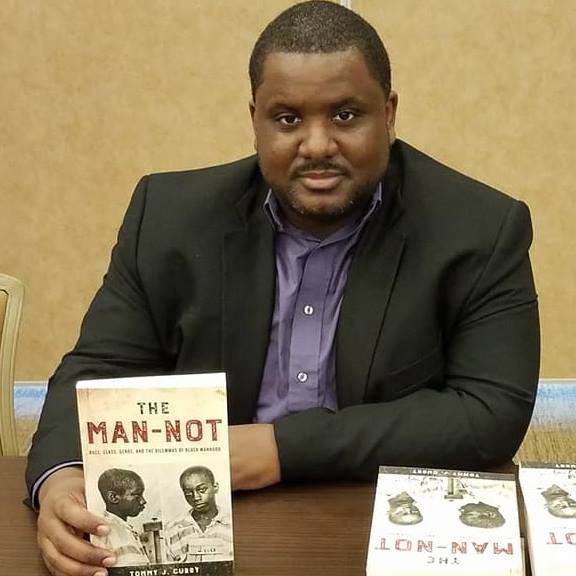Content warning: sexual assault
“Imagine if a young Black male in college wanted to report a sexual violation […] to the Title IX office—would Title IX offices […] even see him as a victim?”
Although rhetorical, the silence that followed this question posed in the Warch Campus Center cinema on Thursday, April 20 spoke volumes in and of itself. It was posed by Professor of Philosophy and Personal Chair of Africana Philosophy and Black Male Studies at the University of Edinburgh Tommy Curry as part of his talk entitled “He Didn’t Want That: Considerations in The Study & Theorization of Black Boys’ Sexual Victimization in the U.S..” Curry’s talk was delivered as part of a series of events dedicated to Lawrence’s observance of Sexual Assault Awareness Month.
Three members of Brother to Brother, a Lawrence organization dedicated to the empowerment of men of color, introduced Curry.
Curry acknowledged that the topic of sexual victimization of Black men and boys may have been new to the audience, but this was to be expected since the issue is also uncharted among public health scholars and clinicians. He stated that the current literature surrounding Black men as victims is almost nonexistent, because little to no interviews have been conducted with Black male survivors. What does exist is highly debated because it contrasts feminist theories surrounding the patriarchy. Nevertheless, Curry said he hoped to create a new awareness in his audience about this issue.
Curry’s thesis was about how the trauma of Black male victims goes largely unnoticed, despite experiencing more instances of sexual violence—including rape, unwanted “made-to-penetrate” sex, sexual coercion and unwanted sexual contact—in a given twelve-month period than both Black and white women separately, according to a 2017 Center for Disease Control (CDC) dataset. He attributes the suppression of trauma—both internalized and externalized—to the racist stereotype of Black male promiscuity, propagated in part by historical pseudo-findings of white social scientists and commonly accepted feminist theories that fail to acknowledge male sexual vulnerability, especially that of Black men. As a result, Curry claims there is a lack of “cultural script” for Black male survivors to follow, and many are not able to come forward until they are much older.
Curry pointed to the dominant idea that men are the primary perpetrators of sexual violence and women are the victims. Even the CDC’s definition of rape is implicitly biased towards the female victim; while it mentions penetration, there is nothing stated about what Curry calls “forced-to-penetrate rape” or forced sex by sexual coercion, two of the primary ways Black men and boys are victimized. Because common sexual ideology fails to acknowledge the reverse case, Curry said that it is more difficult for the Black male survivor to come forward against a female abuser or even simply to be seen as a victim of sexual violence.
Curry tied his argument together for his conclusion, restating that Black male survivors are heavily underrepresented in conversations about sexual violence due to perpetuation of racist stereotypes and a lack of precursor knowledge about healing from sexual trauma.
Following the scheduled talk was a Q&A where those in attendance posed their lingering questions to Curry. One audience member asked how we can help be allies to the Black male survivor experience, to which Curry concluded the session by asking us to include men, especially Black men, in conversations about sexual victimization to change the dominant ideology.
Though the crowd was small, many of them seemed moved by Curry’s words. Several people thanked him for his talk during the Q&A and approached him afterward to shake his hand. Curry himself acknowledged that this was not easy to discuss, but the audience remained engaged and willing to learn the entire way through.


